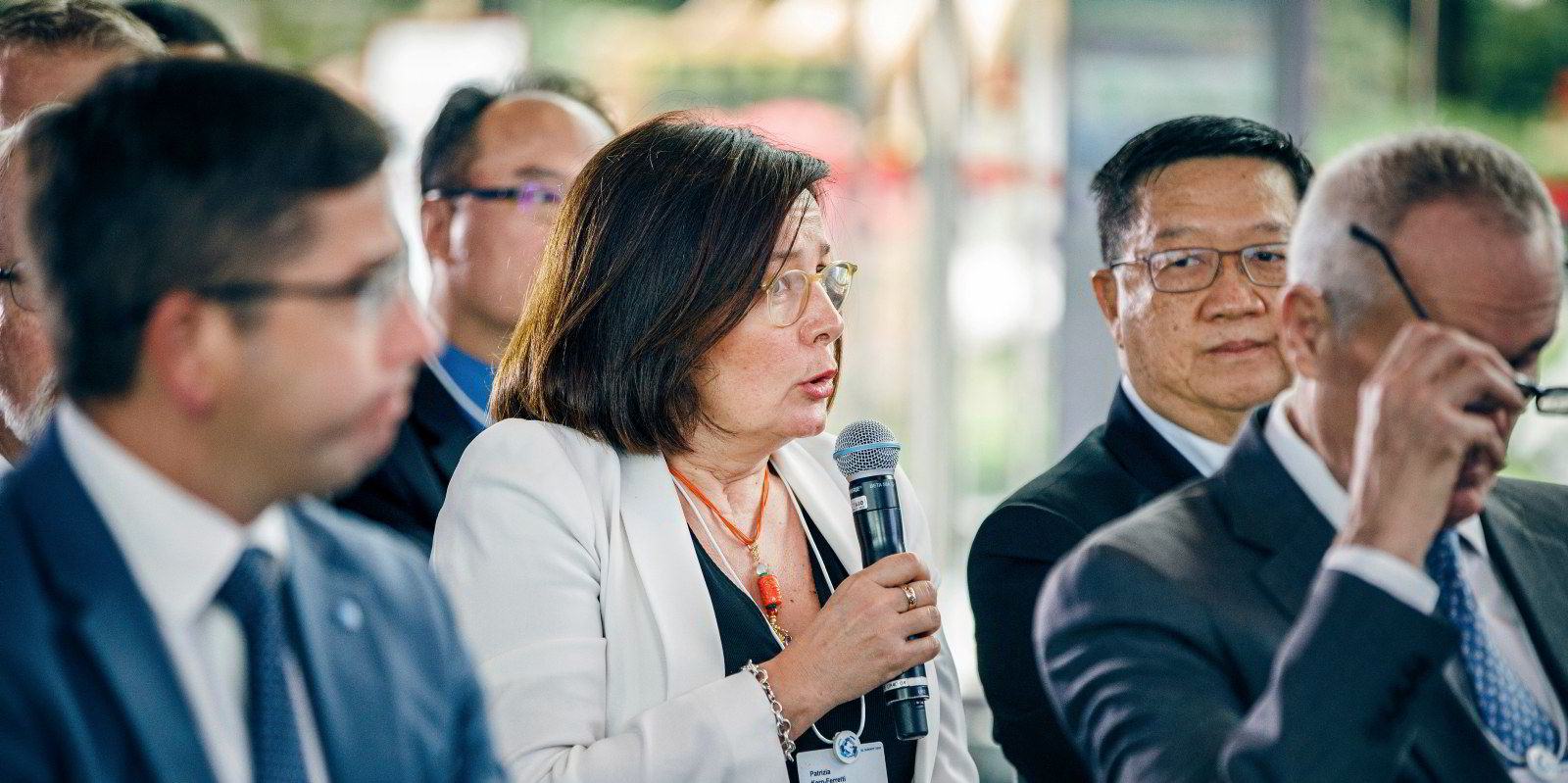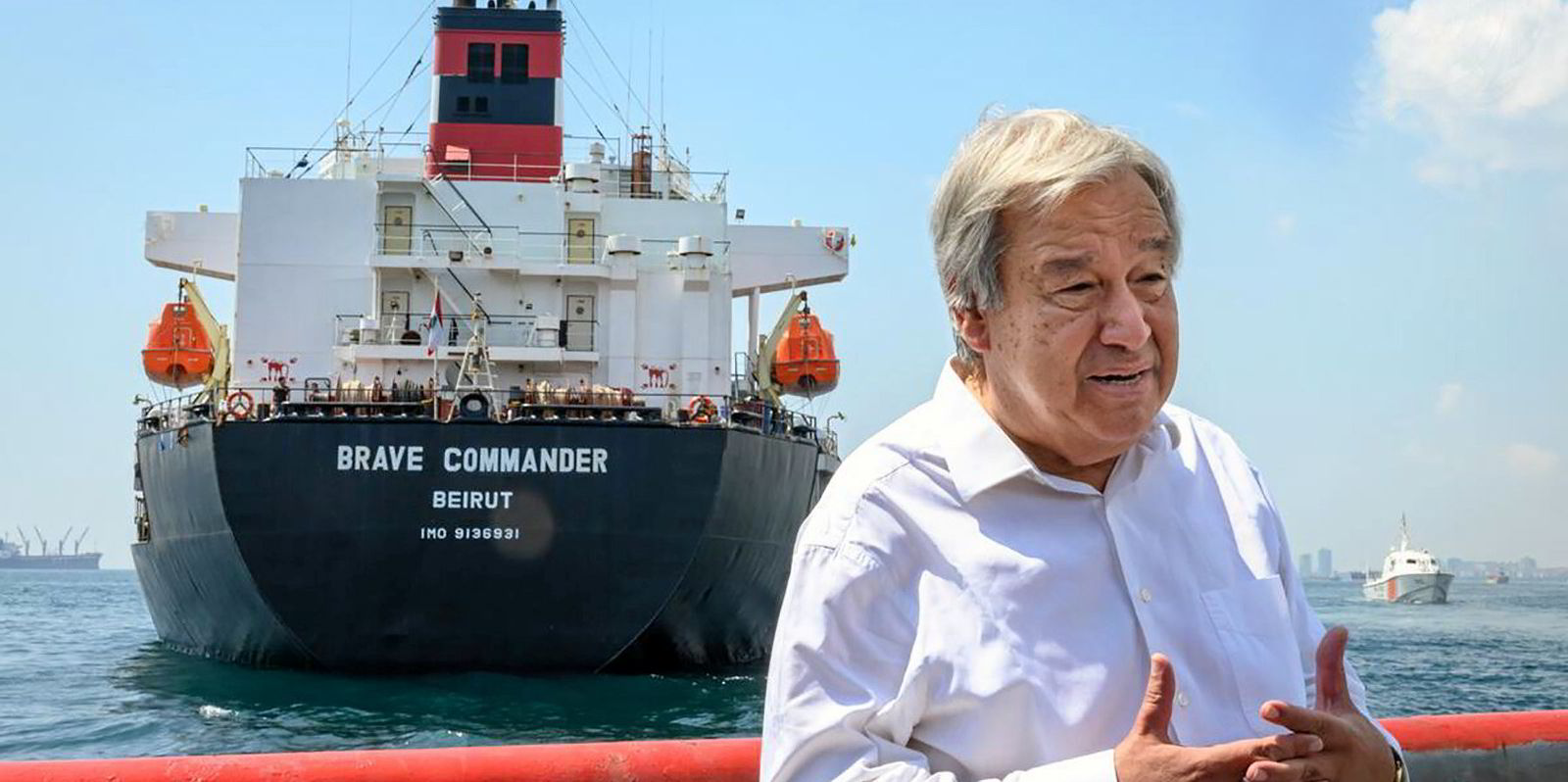The Poseidon Principles for both ship finance and marine insurance have announced that they will benchmark their portfolios against a more ambitious decarbonisation trajectory.
Signatories of the two Global Maritime Forum initiatives committed to measuring their portfolios against a net-zero goal in 2050 that is aligned with aims to cap global warming at just 1.5C.
In an announcement during the forum’s annual summit in New York, the two Poseidon Principles initiatives will continue to also track their clients on the International Maritime Organization’s current goals calling for a 50% reduction in shipping’s carbon footprint by 2050, although the UN shipping regulator is working to increase that ambitions.
Also, to meet that trajectory, both sets of Poseidon Principles will now track all forms of greenhouse gas, rather than just CO2, and will look at their portfolios on a well-to-wake basis, meaning emissions up and down the marine fuel value chain will be factored in.
In the text of the joint commitments, the two Poseiden Principles initiatives said signatories recognise the climate emergency and the finance and insurance sectors’ roles in promoting responsible environmental stewardship across shipping’s value chain.
“The decarbonisation of shipping can only happen with the urgency and scale needed through cross-sector collaboration and with policy support from governments and international regulators,” they said. “We believe there is no time to lose and are ready to play our part in supporting global efforts towards decarbonisation.”
Michael Parker, chairman of the Poseidon Principles for financial institutions, said the new ambition will allow the initiatives to continue to play a role in both incentivising and supporting the shipping industry’s decarbonisation.
“The urgency is clear,” said Parker, who is also chairman of global shipping, logistics and offshore at US bank Citi.
‘We must accelerate’
“Because of the role that shipping plays in the global economy, we must accelerate our ambition towards the Paris Agreement’s 1.5C temperature goal.”
Under the Poseidon Principles, frameworks for ship finance and insurance to align their portfolios with decarbonisation targets, participating banks had been signed up to align with the IMO’s target for cutting shipping’s carbon by 50% in 2050, relative to 2008 levels.
Financial Institutions
ABN Amro, BNP Paribas, Bpifrance Assurane Export, CaixaBank, Citi, Credit Industriel et Commercial, Credit Agricole, Credit Suisse, Danish Ship Finance, Danske Bank, DekaBank, Development Bank of Japan, DNB, Export Finance Norway, Finnvera, ING, KfW IPEX-Bank, MUFG Bank, Nordea Bank, OCBC Bank, SACE, SEB, Shinsei Bank, Societe Generale, SpareBank 1 SR-Bank, Sparebanken Vest, Standard Chartered Bank, Sumitomo Mitsui Banking, Sumitomo Mitsui Finance & Leasing, Sumitomo Mitsui Trust Bank.
Marine insurers
AXA XL, Fidelis Insurance, Gard, Hellenic Hull Management, Navium Marine, Norwegian Hull Club, SCOR, Swiss Re Corporate Solutions, Victor Insurance.
The Poseidon Principles for Marine Insurance, whose launch followed its finance counterpart, were more ambitious from the start, and they already target a 100% reduction by the middle of the century.
The nuts and bolts of how the two initiatives will target the 1.5C ambition is not immediately clear.
The initiatives said in their joint statement that they have committed to a path to zero-carbon “as soon as such a trajectory or trajectories become available”.
Members of each of the Poseidon Principles will agree to a science-based trajectory that is based on credible and well-regarded sources, they said.
Patrizia Kern-Ferretti, head of marine at Swiss Re Corporate Solutions and chair of the Poseidon Principles for Marine Insurance, said access to real emissions data through the Poseidon Principles will have a tangible impact.
“Establishing common global decarbonisation trajectories will help us make business decisions that reflect the latest available climate science. This is the right thing for us to do,” she said.






